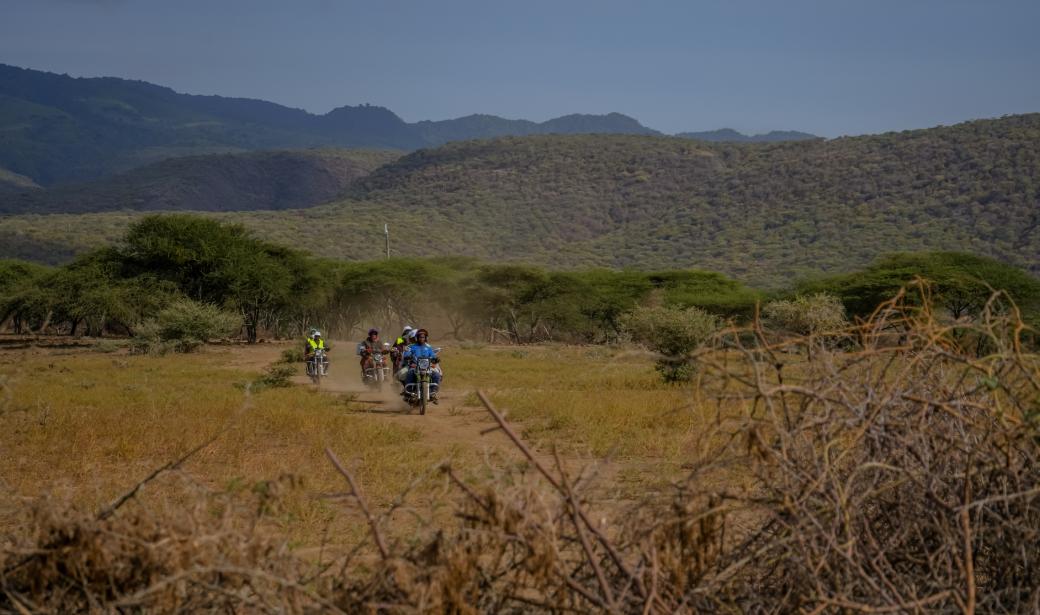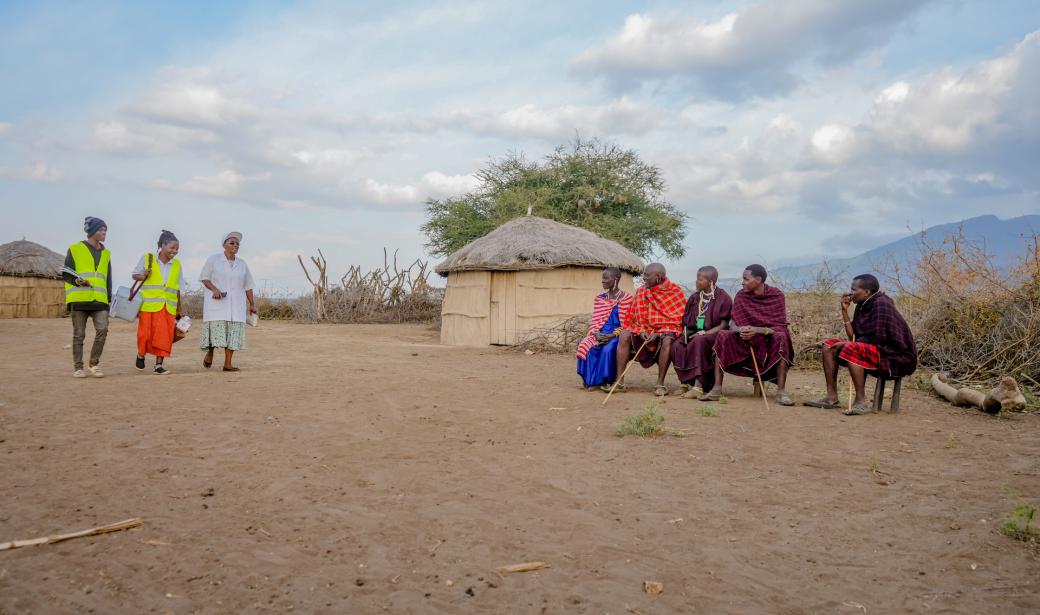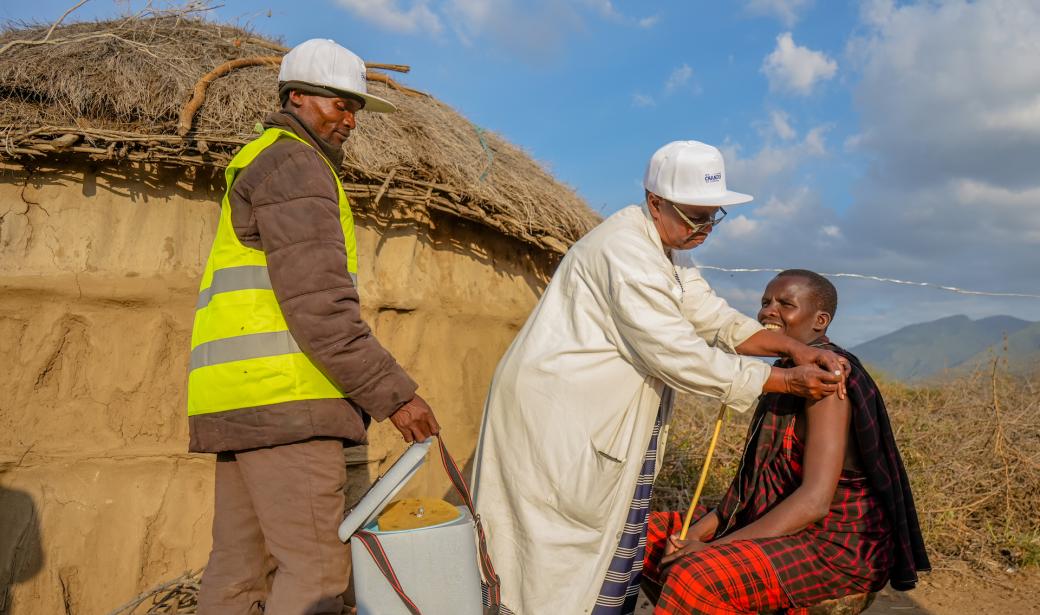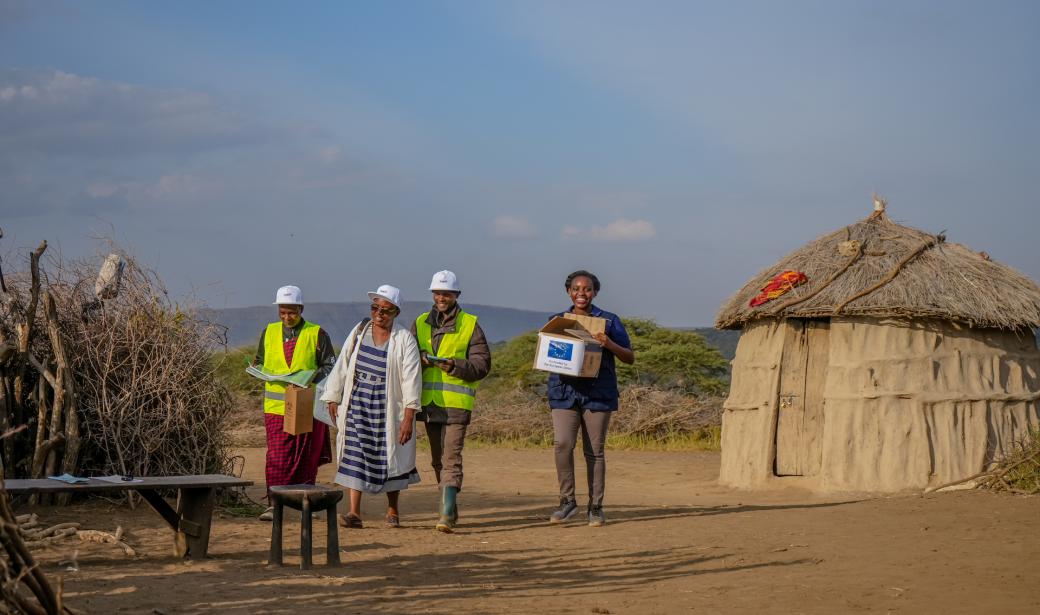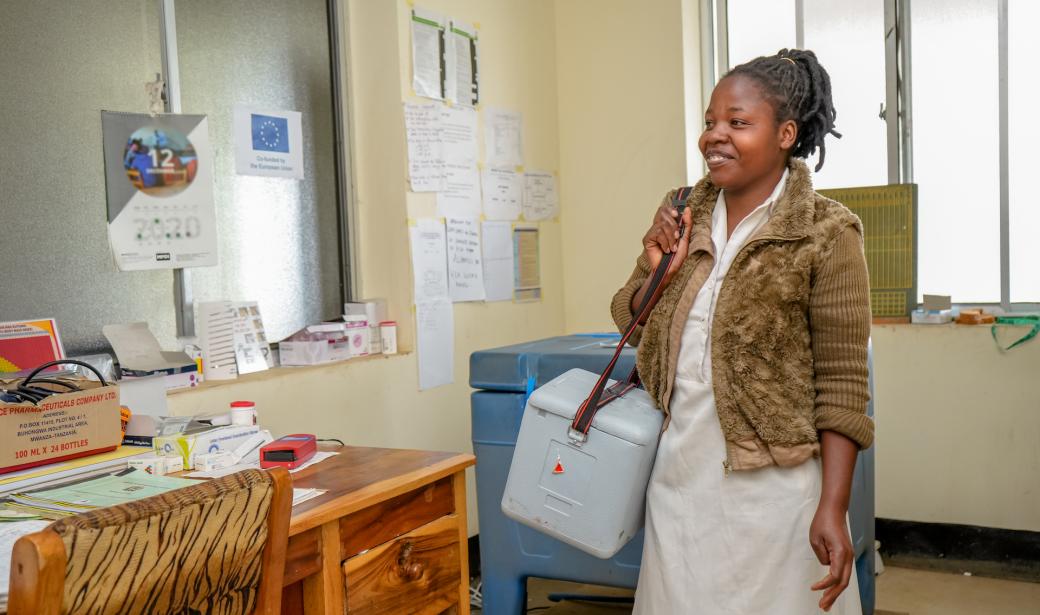Dar es Salaam ‒ Tanzania launched COVID-19 vaccination in July 2021. During the first year of the rollout, misinformation and rumours circulating about the safety and efficacy of COVID-19 vaccines hampered widespread uptake.
The government, with support from World Health Organization (WHO) and partners, revised its vaccine delivery and advocacy strategy and implemented a series of mass vaccination campaigns, increasing coverage from 3.2% of the total population in January 2022 to 54% in June 2023.
With the goal of expanding COVID-19 vaccination to hard-to-reach populations, the European Union has partnered with WHO to support government to implement a mass vaccination campaign in Tanzania’s Arusha region, targeted at Tanzania’s nomadic Maasai people.
In Monduli Juu, a cluster of villages an hour outside of Arusha, motorcycle taxis are playing a key role in the campaign, by helping health workers safely reach outlying communities with COVID-19 vaccines.
As part of government’s boma to boma campaign (a boma is a traditional Maasai homestead), the health workers are on their way to provide COVID-19 vaccination to this isolated community, inaccessible by car.
Motorcycle taxis, or boda bodas, are part of the fabric of everyday life in East Africa, from the busy metropoles to rural villages. For these health workers they are the only transport option to and between homesteads that can be up to five kilometres apart.
“I am very aware of the difficulties to reach communities with health services,” says Ngooni. “So, I decided to be around the health facilities to offer support in transporting health workers to reach these remote villages to get my people vaccinated.”
“However, the challenge then became how to access the vaccines because of where our community is located,” he says. “The boda bodas came to our rescue as they brought the health workers to us.”
In Arusha region,18 months ago, only 2.8% of the population had received a COVID-19 vaccine. As a result of the tireless efforts of 200 teams of vaccinators, record keepers and social workers, vaccination coverage among the adult population has now reached 100%.
The work is demanding because of language barriers and the difficult terrain, but Lyuvale believes that every location has its challenges, whether the city or the village.
“This is my first experience and as a health worker I like these challenges,” she says. “Seeing that my efforts are helping to reach the Maasai community with vaccines has been fulfilling.”
Communications Officer
WHO Country Office, United Republic of Tanzania
Tel: +255 744377899 (Phone)
Email: adjeidum [at] who.int (adjeidum[at]who[dot]int)
Communication Officer
WHO Regional Office for Africa
Email: ridgardn [at] who.int (ridgardn[at]who[dot]int)
Tel: +254 11 289 0666



